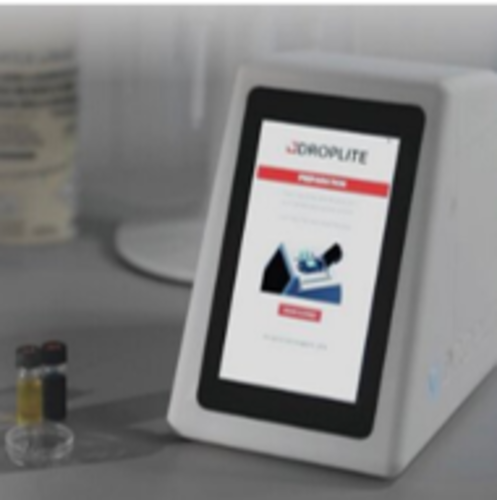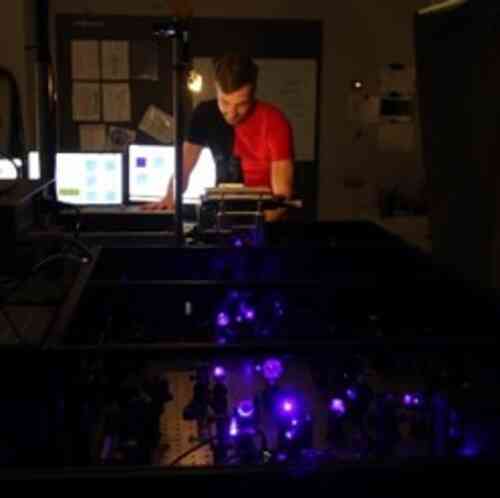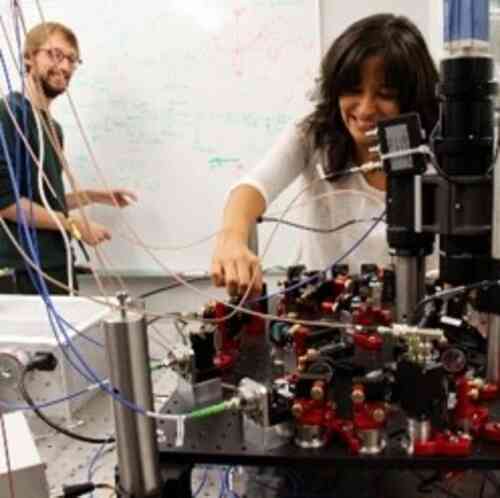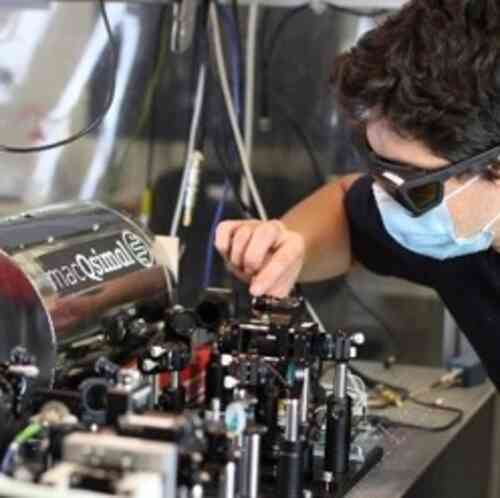ICFO decide game
Group 2 – Participant 6
Story cards
Read all the cards from this category, choose the one that looks more interesting to you and explain it to the rest of the group.
laura lorenzo
Story Card 3
I have always thought that artificial light could only bring us benefits as it allows us to live and work regardless of the hours of sunlight in a day. However, yesterday my neighbor, who is a big fan of technology and science, explained to me that artificial light can disrupt the life cycles of living beings.
There are many things left to understand about light pollution: that’s why she invited me to participate with her in a citizen science experiment to help researchers study the consequences of the exposition to artificial light. Who would have thought that walking and taking pictures with my cell phone could contribute to science!
health
pere puig
Story Card 7
I like to feel safe when driving, so I'm happy with any safety innovation. For example, I'm thrilled to have infrared light sensors in my new car that help me park and alert me when a car gets too close, avoiding scares and even some accidents!
In a few years, I hope to be able to buy a self-driving car that drives me around: finally I’ll be more calm and relaxed when I’m stuck in traffic, because the car will do all the work. Much of the obstacle detection work will be done by infrared photon pulses, maybe even detected by graphene cameras!
information and cybersecurity
ernesto espinosa
Story Card 14
When I was studying at the Academy of Fine Arts, I would have never thought of pointing a laser at a picture by Leonardo da Vinci like I am doing right now! Don’t worry, I don’t want to damage it: the laser allows me to clean it and to bring it back to its original splendor.
Lasers and photonic analysis techniques are very useful tools for restorers of works of art like me: they allow us to analyze different aspects of works of art (such as pigments, or the process followed by the artist) without jeopardizing the integrity of the pieces. My work mixes art and science: I’m sure Leonardo himself would love it!
photonics everywhere
info cards
Read all cards from this category, choose the two that look more interesting and explain them to the rest of the group.
A laboratory in a chip
Info Card 5
For a blood test, we have usually to go somewhere where they fill several tubes with our blood and we then have to wait a few days for the results. Thanks to the effective interaction between photons and gold nanoparticles, a blood analysis laboratory can fit inside a chip of a few centimeters that allows us to obtain the results in just 10 minutes from a single drop of blood.
This technology developed by Droplite (an ICFO spin-off company born in 2018) is currently validated to detect hormones linked to the reproductive cycle, allergies, antibodies for some veterinary or human diseases (such as malaria and COVID-19), but it has many other potential applications.
Photo: Prototype by Droplite
health
understanding photosynthesis
Info Card 18
Some organisms can transform sunlight into the energy they need to live with photosynthesis. This process, resulting of millions of years of evolution, is incredibly efficient: they can transform 95% of the light that reaches them into energy. In contrast, the best solar commercial panels today translate only 20% of energy into electricity.
At ICFO, we use ultrafast laser pulses to "photograph" the molecules responsible for capturing light energy found in photosynthetic organisms in order to better understand this process and improve the efficiency of solar panels.
Photo: Experimental setup to study some of the relevant molecules for photosynthesis
energy and environment
some of the coldest corners of the world
Info Card 20
ICFO has some of the coldest corners in the world, but no one can get in. There the temperature is lower than in deep space: only small fractions of a degree (hundreds of nanokelvins) above absolute zero.
Only a few laboratories in the world can reproduce these conditions in small vacuum chambers, where they can trap small quantities of atoms (from a few million to a single one, depending on the experiment): in order to be able to study the interesting quantum properties that appear at such low temperatures, it is fundamental that the atoms are as cold (and therefore as still) as possible.
(Foto: One of the ICFO laboratories where they cool atoms close to absolute zero.)
photonics everywhere
improving our perception of the world
Info Card 24
The small changes that light undergoes when crossing different materials can help us measure with high accuracy many characteristics of the world around us, such as distance and temperature.
At ICFO we work to obtain very resistant sensors to measure temperature and electric fields in extreme conditions, such as a fire.
We also investigate how to build ultra-sensitive sensors thanks to the properties of quantum physics, such as a scale that can detect the presence of just one atom with carbon nanotubes or cold atoms that could measure the small magnetic fields generated by our brain.
Photo: Prototype of an ultrasensitive quantum magnetic field sensor.
information and cybersecurity
thinking cards
Read all the cards from this category, choose the one that looks more interesting to you and explain it to the rest of the group.
RECOVER THE INVESTMENT
Thinking Card 10
Fundamental research, such as that in certain fields of quantum physics, requires economic resources that do not translate into short-term applications. On the other hand, if we limit research to sectors that can give a rapid economic return, it is difficult to reach the solid general scientific basis that underpins technological progress.
How can we solve this "circle"?
teamwork
Thinking Card 17
ICFO scientists work closely with each other and often with colleagues from other institutes around the world and from other disciplines. Many scientific advances are the result of teamwork.
Still, one often reads stories of quasi-heroic characters who apparently alone changed the scientific field in which they worked. Also the most prestigious science awards, the Nobel Prizes, are awarded to a maximum of 3 people, who often have not even worked together, even if behind many revolutionary ideas there is a team of researchers. Should we value more the role of teamwork in science and recognize more explicitly that results often come from a collective effort?
DECISIon
The time and resources available to solve important problems affecting society are limited. Imagine being part of the commission that has to decide how to invest the money for photonics research at European level for the coming years: knowing that photonics benefits society in many different ways, how would you distribute funds among the different research fields in photonics?
This is not an individual decision: each group must come to a unanimous conclusion by discussing correctly and rationally based on the facts that you have learned so far. There is no right or wrong answer. Like many things in life, it depends on the point of view you assume, the priorities you set, ...
light for health
Option 1
The pandemic that arose in 2020 taught us that public health is an important sector that affects many more aspects of society. A tiny virus can affect the lives of millions of people in all its aspects, not only health, but also the economy, industrial structure, labor market ...
That’s why it’s important to focus most of our efforts on research projects that can improve and care for people’s health.
light for information and cybersecurity
Option 2
We live in the information age. More and more companies and institutions are collecting and analyzing large amounts of data to improve industrial processes and services for the population. In addition, digital technologies are essential to communicate with each other, whether for work or fun. If information systems fail, strategic structures such as energy networks, traffic control, hospitals, governments, etc. fail, too. Thus, ensuring data security for quick and massive data transfer is of fundamental importance for a digitized society like ours.
That is why it is important to focus most of our efforts on research projects that can improve data collection, analysis, transmission and security.
light for energy and the environment
Option 3
We are in the middle of a climate emergency: to be able to solve it we need new environmental policies and the commitment of society as a whole. Science and technology can accelerate the change of paradigm that we need to save the planet with discoveries and innovative technologies. If we do nothing now, the Earth will be uninhabitable and unsustainable, but there’s still time.
That’s why it’s important to focus most of our efforts on research projects that can help us take care of our planet.
photonics everywhere
Option 4
Photonics is everywhere and has a positive impact in many different aspects of our lives. Sometimes, the same technology (such as the laser) can improve health, information and care for the environment at the same time. There are many global issues and it is difficult to set a priority, especially because they are interconnected.
That’s why it’s important not to focus our efforts on a single field of application: it’s better to diversify our efforts to have more chances of success.













